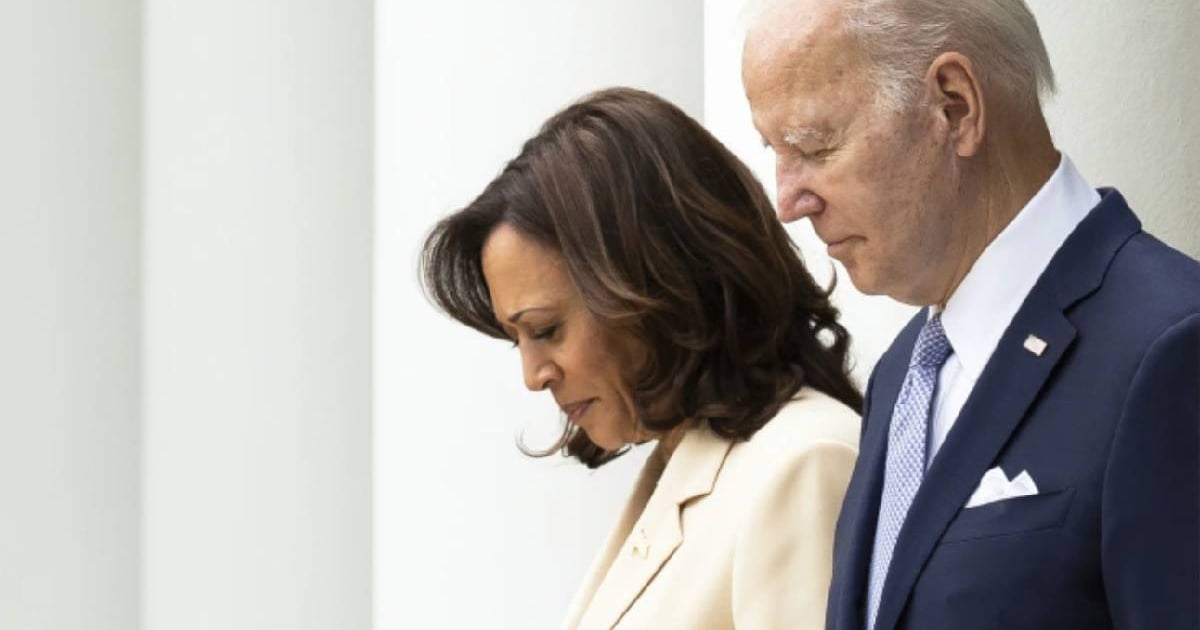The 2024 presidential election marked a painful milestone for Kamala Harris, whose defeat, while not directly attributable to Joe Biden, serves as a closing chapter in a saga that began with promises to restore America's "soul" under his leadership in 2020. With the reality of the electoral loss now undeniable, many political analysts argue that Biden's decision to remain in office until mid-2024 significantly contributed to the Democratic Party's downfall.
This setback is not just seen as a personal failure for Harris but also a consequence of the cumulative wear and tear experienced during Biden's presidency. Despite being the most seasoned figure in current American politics, Biden managed several notable achievements, such as navigating the country through the pandemic, passing a landmark trillion-dollar infrastructure plan, and bolstering U.S. international support in the Ukraine conflict against Russian aggression. These accomplishments, while significant, did not alleviate the immediate worries of voters.
Economic Concerns and Leadership Perception
Pressing issues like inflation, rising living costs, and dissatisfaction with border management eroded public support. Biden's candidacy faced a paradox; while he vowed to restore "decency" to the White House, many voters doubted his ability to tackle contemporary challenges. At 81, concerns about his age and declining vitality weighed heavily, overshadowing his administration's successes.
Biden's late decision to exit the electoral race in July 2024 left the Democratic Party without sufficient time for a meaningful leadership renewal. This lack of internal competition hindered the party's ability to find a leader with the necessary dynamism to confront Donald Trump.
Kamala Harris: Unfulfilled Potential
As Harris stepped up as the Democratic candidate, she aimed to present a fresh and innovative alternative. Her campaign, emphasizing reproductive rights and economic recovery, garnered support, particularly among young women. However, her failure to distance herself from Biden's legacy proved detrimental.
The absence of a clear distinction between her platform and her predecessor's left her in a political deadlock. Her infamous response on The View, where she failed to identify a policy she differed on from Biden, became emblematic of her campaign's lack of clear direction. This inability to differentiate weakened her appeal among undecided voters and allowed Republicans to exploit the narrative of a rudderless Democratic Party.
The Republican Resurgence: Trump's Return
Harris's struggle to connect with key voter demographics, such as Latinos, African Americans, and young people, exposed the unchanged electoral base that Biden had failed to expand. Ultimately, this was an oversight Harris could not rectify.
The bitter irony of Harris's defeat lies in the fact that, despite Biden's victory over Trump in 2020, the Democrats found themselves in 2024 handing the White House back to the very man they had unseated four years earlier. For many analysts, Biden’s legacy might be remembered not only for his achievements but for paving the way for Trump's return.
The 2024 election result is widely viewed as a strategic failure on both Biden's and Harris's parts. Biden's delayed withdrawal left the Democrats unprepared for renewal, while Harris, initially seen as a symbol of change, failed to offer a clear alternative or differentiate herself from the outgoing president.
Ultimately, this defeat underscores a critical lesson for the Democrats: the urgent need for early and effective leadership renewal. Now, they face Trump's presidency without a strong, visible leader to counterbalance his influence.
